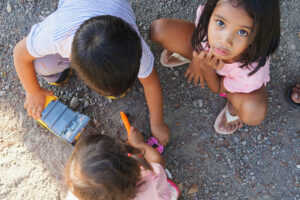
1 in 3 Filipino kids stunted — study
ONE in three Filipino children are experiencing stunted growth or malnutrition due to a lack of high-quality early childcare and prenatal care, according to the report released by the Philippine Institute for Development Studies (PIDS) and the Second Congressional Commission on Education (EDCOM-2) this month.
In a statement on Thursday, EDCOM-2 said that there is a “severe underinvestment” in the welfare of very young children in the Philippines, which also causes their early education to suffer.
“Overall, the current supply of capital investments for ECCD (early childhood care and development) in the country falls short of meeting the goal of universal access for children aged 3-4 to ECCD services,” the study dated May 2 said.
The government only spends about P3,870 per child for health, compared to the $150 (P8,588.55) other lower and middle-income countries spend on children’s health, it added.
PIDS noted that participation in early education of Filipino children aged 3-4 is also still below pre-pandemic levels.
“The country’s current facilities are insufficient by around 33,000 to meet the 96,000 daycare/child development centers required to meet 100% of the demand,” the report said.
EDCOM-2 Executive Director Karol Mark Yee said despite the government’s array of feeding programs, it is still crucial to start boosting investments in early childhood care to address malnutrition and stunting.
“We need to go the extra mile to understand the complexities of the underlying ills of our education system, so that our proposals are needs-based, responsive, feasible, and sustainable,” said Mr. Yee. “This would include identifying the right investments for our Filipino children.”
Senator Sherwin T. Gatchalian, who heads the Senate Basic Education Committee and co-chairperson of EDCOM-2, said education stakeholders and local government units should boost cooperation in early childhood care and education.
“Moving forward, local government units should also have more accountability in ensuring that the benefits of early childhood care and development) programs, including health and nutrition interventions, are felt by every Filipino child,” he said. — John Victor D. Ordoñez



